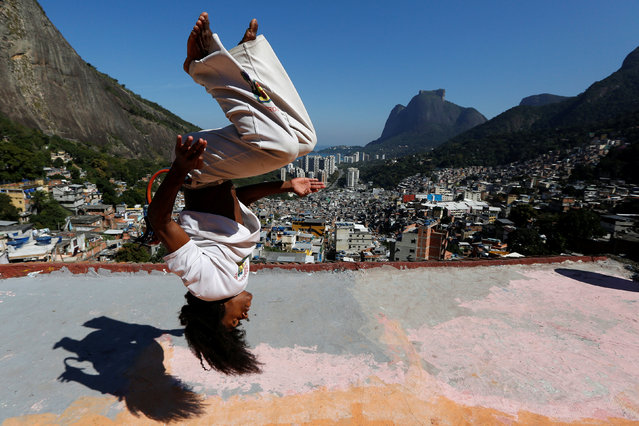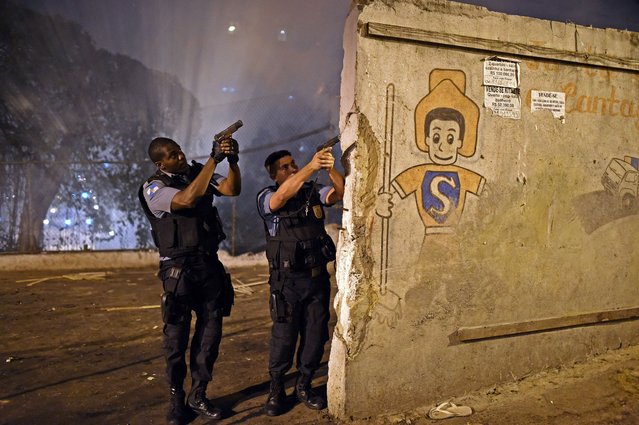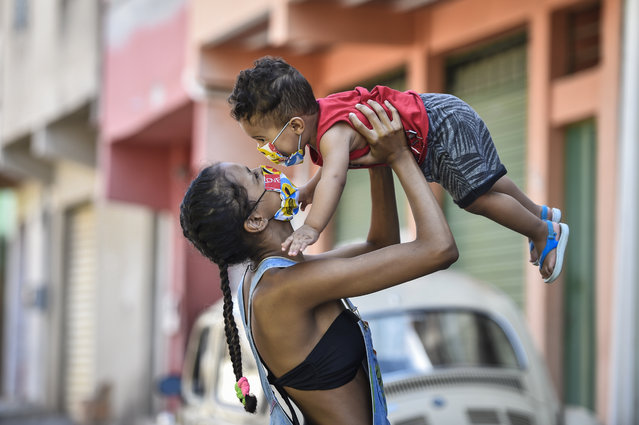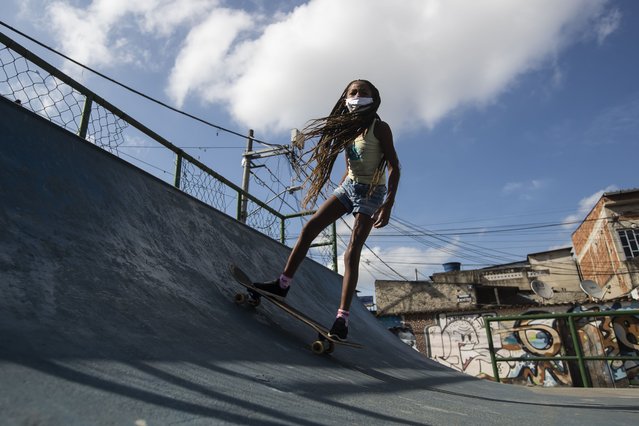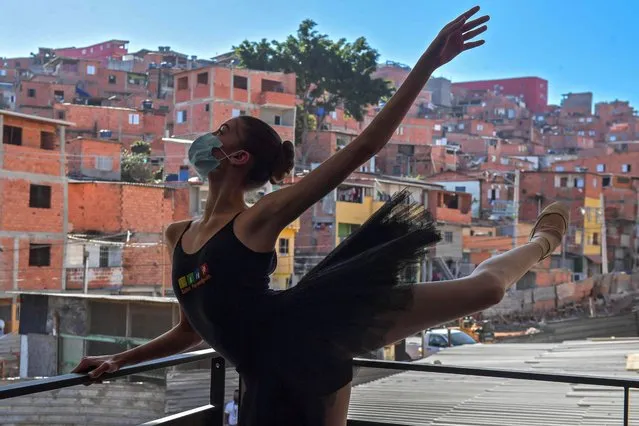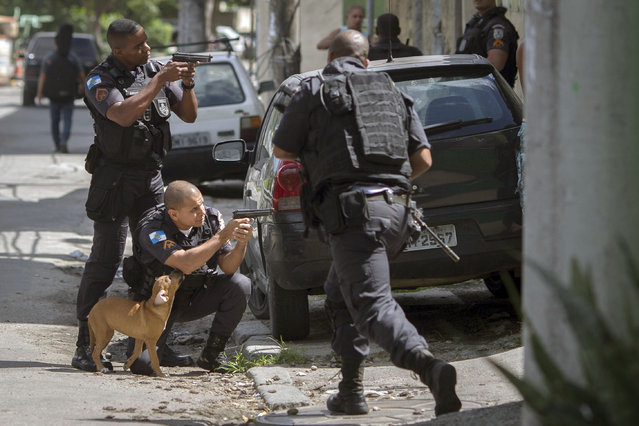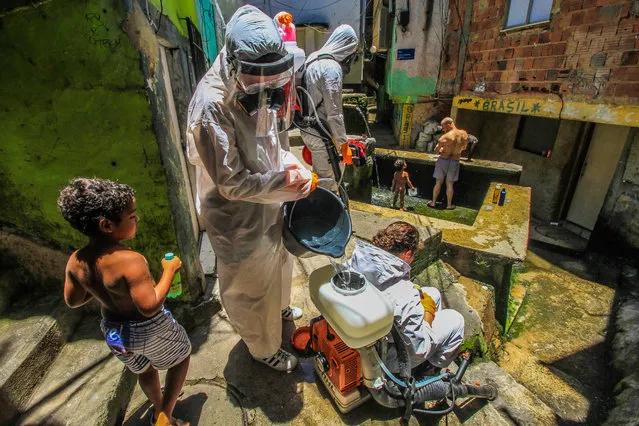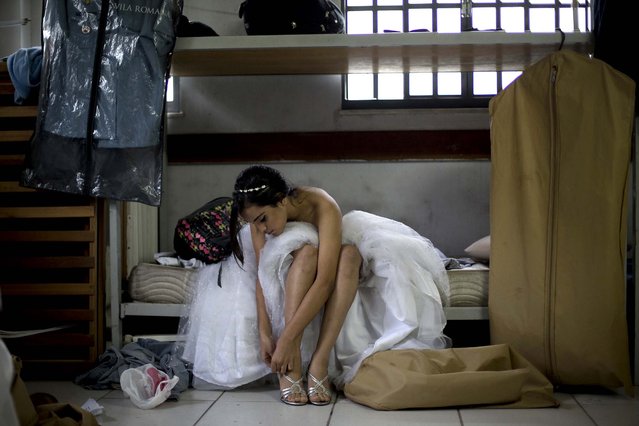
A teenage girl from the Santa Marta favela slum puts on a pair of high heels for a group debutante ball organized by the Pacifying Police Unit from her neighborhood in Rio de Janeiro, Brazil, Friday, August 29, 2014. The ball, which relied on volunteers who coiffed and made up the girls and a formal wear shop that loaned the dresses, helped build goodwill between pacified favelas' residents and the officers who patrol them. (Photo by Silvia Izquierdo/AP Photo via The Palm Beach Post)
31 Aug 2014 08:58:00,post received
0 comments

